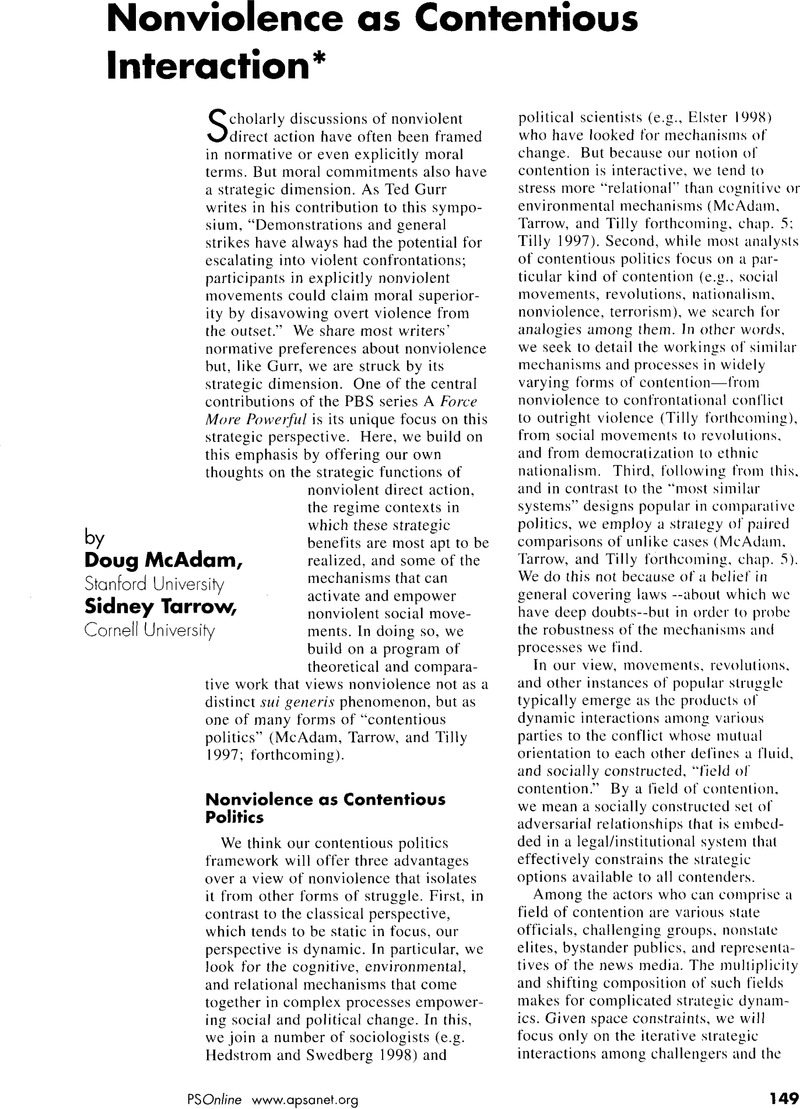Crossref Citations
This article has been cited by the following publications. This list is generated based on data provided by Crossref.
Chabot, Sean
2008.
Love and Revolution.
Critical Sociology,
Vol. 34,
Issue. 6,
p.
803.
De Fazio, Gianluca
2009.
Civil rights mobilization and repression in Northern Ireland: a comparison with the US Deep South.
The Sixties,
Vol. 2,
Issue. 2,
p.
163.
Cromwell, Michelle
and
Vogele, William B
2009.
Handbook on Building Cultures of Peace.
p.
231.
Shaykhutdinov, Renat
2011.
Education for peace: protest strategies of ethnic resistance movements.
Journal of Peace Education,
Vol. 8,
Issue. 2,
p.
143.
El-Affendi, Abdelwahab
2012.
Revolutionary anatomy: the lessons of the Sudanese revolutions of October 1964 and April 1985.
Contemporary Arab Affairs,
Vol. 5,
Issue. 2,
p.
292.
Sokphea, Young
2017.
Transnational advocacy networks in global supply chains: a study of civil society organizations’ sugar movements in Cambodia.
Journal of Civil Society,
Vol. 13,
Issue. 1,
p.
35.
Young, Sokphea
2017.
Transnational Advocacy Networks in Global Supply Chains: A Study of Civil Society Organizations’ Sugar Movements in Cambodia.
SSRN Electronic Journal,
Young, Sokphea
2019.
Movement of Indigenous Communities Targeting an Agro-Industrial Investment in North-Eastern Cambodia.
SSRN Electronic Journal,
Young, Sokphea
2019.
Popular Resistance in Cambodia: The Rationale Behind Government Response.
SSRN Electronic Journal,



